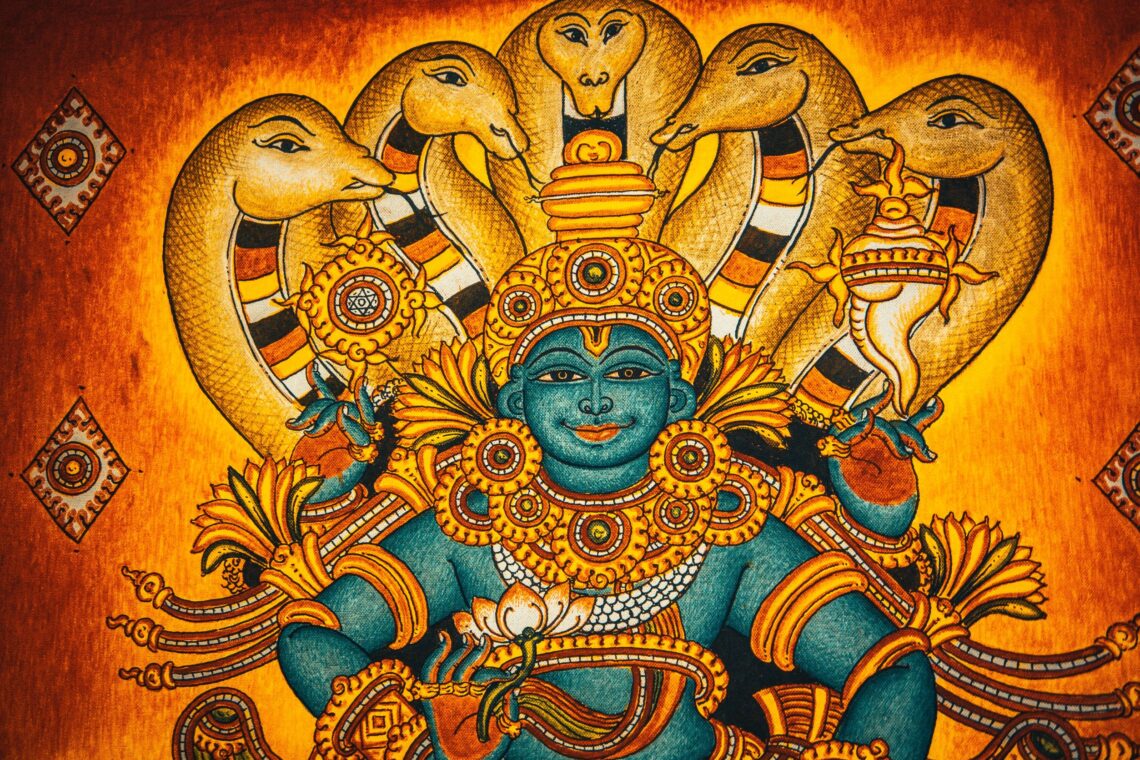
Krishna Tells Us How to Live on a Withering Planet
We are in a lot of trouble on this planet. We have a myriad of problems, but none of them are larger than climate change. One could argue, the other major threat to our existence stems from the potential of nuclear conflict resulting from the war in Ukraine.
So, let’s suppose as we look at this mess, we really think our stay on this planet is in danger. What do we do? How do we live our lives if we think there may not be much of a future in store for us?
We might ask ourselves what is the point then of doing anything constructive? We might decide to just tune it all out and live for today, enjoying life while we can and letting the future unfold as it will.
Arjuna Faced a Similar Dilemma
Arjuna, the Indian warrior faced such a dilemma in the Bhagavad Gita (Song of our Lord), the most revered of all the ancient Hindu texts. Well, it’s not exactly the same, but he faced a dilemma where he decided he couldn’t go on.
His dilemma was that his blind uncle, Dhritarashtra had usurped the throne from his father and family, and since Dhritarashtra, who was a bad and cruel ruler, was getting older he wanted to give the throne to his oldest son, Prince Duroydhana, when it rightly belonged to Arjuna’s oldest brother, Yudhishthira, who was the natural heir to his father, the rightful king.
It is Arjuna’s task, as the warrior, to win the throne back for his family. Arjuna asks his charioteer, Krishna, to drive them into the battle. This is where the Bhagavad Gita, begins.
Arjuna’s Lament
But as they get closer to the battlefield, Arjuna recognizes the people he is going to fight. He sees Prince Duroydhana, who while being his enemy is also his cousin. In addition, he sees people he grew up with on both sides; fathers, grandfathers, teachers, brothers, uncles, grandsons, in-laws, and he falls into despair. He expresses his dilemma to Krishna:
“How can I bring myself to fight against Bhishma and Drona, who are worthy of reverence? How can, I, Krishna? Surely it is better to spend my life begging than to kill these great and worthy souls! If I killed them, every pleasure I found would be tainted. I don’t even know which would be better, for us to conquer them or for them to conquer us; but why would we care to live if we killed them? My will is paralyzed, and I am utterly confused.”
He then asks Krishna to be his spiritual guide.
The Limits of the Practical Person
Eknath Easwaran, in his translation of the Bhagavad Gita, frames Arjuna’s dilemma this way:
“Arjuna is essentially a man of action, renowned for his bravery, nobility and skill in the arts of war–intelligent but not given to reflection. Yet in his present crisis, he finds that the active life is not enough. He is forced to ask the perennial questions about life and death: Does he have a soul? Does it survive death? Is there a deeper reality than we perceive in the world around us? If so, is it possible to know it directly, and (for Arjuna is always practical) what effects does such knowledge have in everyday life?”
It is Krishna’s job now to rouse Arjuna from his stupor and convince him that he needs to fight.
Krishna Instructs Arjuna and Us
In the opening I compared this to our modern world today, where we face innumerable personal, social and global problems. Sometimes it can feel overwhelming, and sometimes we think we can’t go on. So, as Krishna instructs Arjuna, let him also instruct us.
Krishna then tells Arjuna he is a warrior and it is his dharma (duty) to fight. He says there is nothing more important than fulfilling one’s destiny. It’s even more important than winning the war and restoring the throne to his family
Krishna tells Arjuna that he has an immortal soul, a real Self, that gives him his purpose. Following this purpose is more important than the passing events of the physical world. Wars and people come and go, but one’s soul is eternal.
The Soul is Permanent, the World Isn’t
Krishna points out that the soul wears a body like the body wears a garment. When the garment becomes old and tattered, we throw it away and get another. Likewise, when the body becomes old and worn out, the soul gets rid of it and gets another.
Krishna tells him the people who will die today on the battlefield will not really die because death is an illusion. Nobody dies because they too will be reborn. Everything in this world is temporary and will pass. The soul on the contrary is eternal, and therefore is not subject to time or death.
What Arjuna needs to do, Krishna says, is to identify with what never dies and therefore is never born, his immortal soul. He needs to carry out his duty and fight. The outcome of the battle is not important, the only thing that is important, for all of us in all situations, is to fulfill our destiny.
Arjuna Must Follow His Dharma No Matter the Outcome
For those of us who are pacifists, this may sound a little too violent. But remember, Gandhi, the champion of non-violent resistance, always kept a copy of the Bhagavad Gita close to his side, referring to it often.
We can look at Arjuna’s battle metaphorically. The real battle is our inner battle against our lower nature. We need to get control of our selfish desires, otherwise they will lead us to ruin.
Krishna says to realize our immortal souls, we must see beyond the dualities of life, like pleasure/pain, success/failure, even heat/cold. To understand this fully, one needs to cultivate mystical experiences.
Through these, we can create a profound and lasting peace of mind, making us more effective in the everyday world. With calmness and clarity of mind, we make better judgements because our minds are not clouded by emotions and worry about the outcome of our actions.
When choices are dictated by desires, the mind becomes confused and scattered.
The Lesson For Us Today
Krishna then tells Arjuna he is a warrior and his dharma (duty) is to fight. If he doesn’t fight, others will laugh at him and think he is a coward. He will be humiliated because he will have neglected his calling.
The lesson for us today, is to discover our own dharma or purpose in life. It is our soul’s expression of who we are. Whether the world seems hopeless to us right now or not, we need to cultivate our souls to find out what role we are to play in this unfolding world drama.
The answer is also not to just tune it all out. If we do, it means we will allow ourselves to be run by our senses and desires, and this will destroy us, both individually and collectively.
The path is the middle way. We can’t get too caught up in the world, nor can we completely detach ourselves from it because both will lead us to ruin. The path is to be in the world, but not of it.
The world is the stage for us to fulfill our dharma. That is all we can do. Single handedly we can’t change a whole lot. But if enough of us follow this path, then maybe we can bring about a better and more just world.
If not, we have done what we were put on this earth to do. We can’t do any more than that. We will have stayed true to our immortal souls, and that will be its own reward.
To learn more about the magic of the universe: Click this link: The Magical Universe.
Photo by Raimond Klavins on Unsplash




